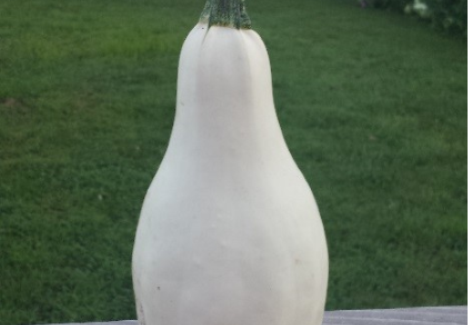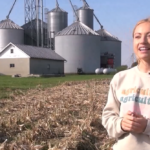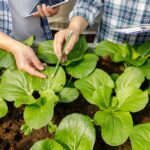
The Mystery of the Albino Squash!
09/10/2015
The newest member of our team, Susan, brought us something unusual – an albino squash that grew in her garden!
Susan explains how she discovered this strange squash: “It started growing from the compost pile. Last year, a pattypan squash sprouted from the compost and produced an abundant crop. I decided to let the seedling grow and see what it turned out to be. When the first little green fruit appeared, it looked like a butternut squash or zucchini. But it soon became apparent that something strange had happened – it turned white! Here is the final result: an albino vegetable that is the size and shape of a zucchini and white like a pattypan squash. “
To help Susan figure out what she had grown, we turned to Dr. Kevin Folta, professor and chairman of the Horticultural Sciences Department at the University of Florida.
How did this happen? Is it a natural process?
Dr. Folta:
You have a carotenoid mutant – a defect in the accumulation of the yellow, orange and red pigments. It happens. The good news is it’s really cool. The bad news is it means less of carotenoid-based vitamins (like vitamin A) and also a change in the flavors, as many compounds contributing to sensory quality are carotenoid based. It is some sort of spontaneous mutation that overrides the ability to produce carotenoids. This happens from errors in DNA replication, sunlight, or many other environmental factors. Plus, plants are loaded with mobile DNA and viruses that move around and disrupt genes. These changes are common and cause some of the most important traits in agriculture, like tomato shape. That could be what happened here.
Does this kind of thing occur often?
Dr. Folta:
Probably not. Plants are pretty good at correcting genetic mistakes, but once in a while they sneak through.
What would happen if I planted the seeds from this squash next year?
Dr. Folta:
That is the big question. My guess is that it should be inherited and you’ll see all plants produce white fruit, or white to yellow at a 1:1 ratio.
What should I do with this strange squash?
Dr. Folta:
The big next step is to eat it, and if it is not awful, plant those seeds next season.
Anything else gardeners should know?
Dr. Folta:
Plants are weird. Mutations happen and are the basis for every horticultural trait that makes fruits and vegetables exciting. Gardeners should always be on the lookout for exciting new changes. They could even identify a new major variety!
With Dr. Folta’s advice in mind, Susan cooked the albino squash in some olive oil with seasoning. She reported that it tasted “okay but not great.” She is saving the seeds to plant next spring to see if she can grow more albino squash. Have you ever had a mystery vegetable show up in your garden? Share with us in the comments below.


























